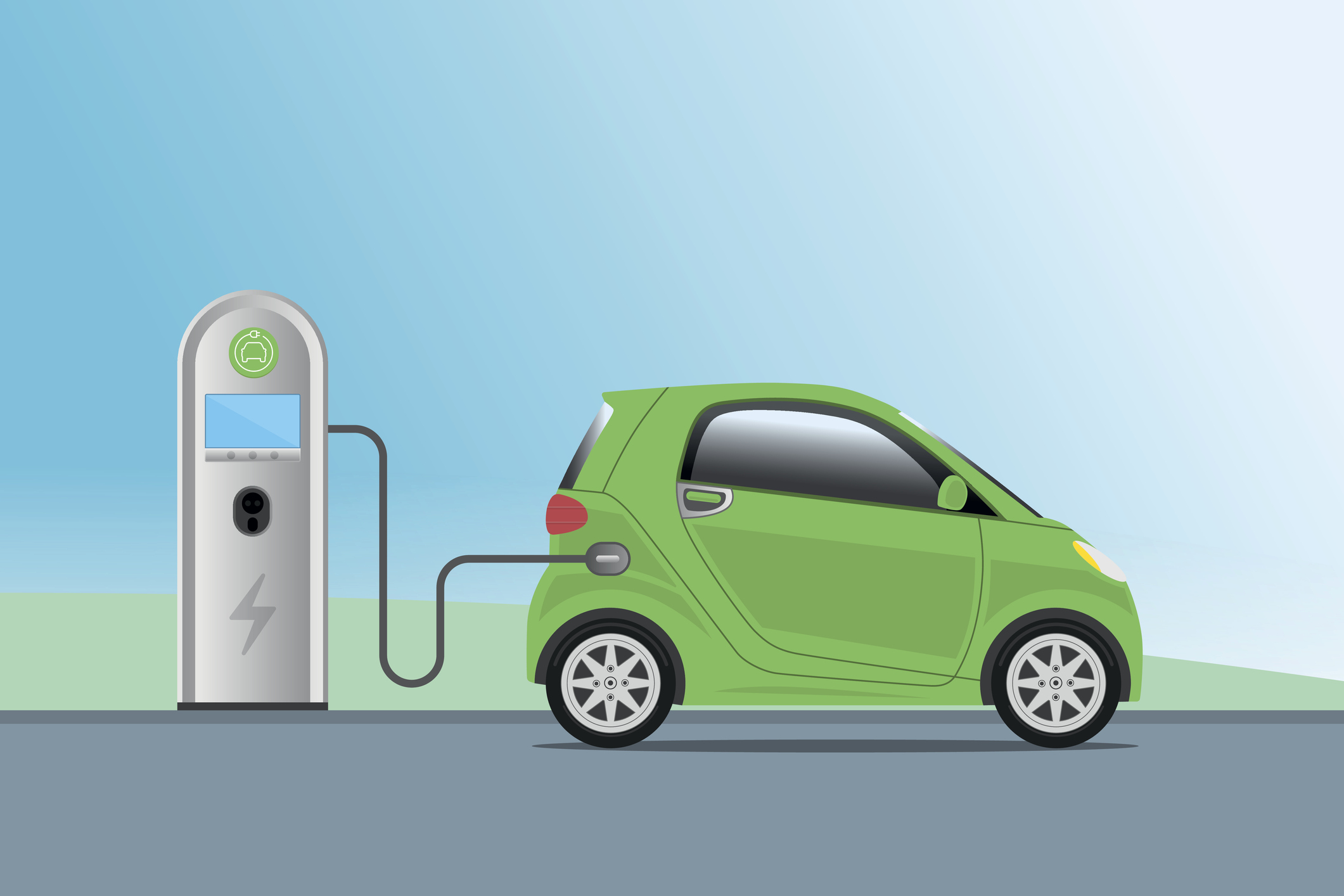
Electric vehicles have received a lot of attention since the introduction of the $7,500 federal EV tax credit. While the federal tax incentive for EVs has caused confusion (and recently changed again on Jan 1), it's equally important to consider the state tax landscape for EVs.
State EV tax incentives
Some states levy extra fees on electric or hybrid vehicle owners or drivers. Some refer to these additional fees as an "EV tax." And while most states have such fees, as of the end of last year, about a dozen states didn't charge EV owners more to register their vehicles.
Here is a list of those states.
[Note: "Tax your EV" refers to states that will not charge an additional registration fee for electric vehicles according to the latest publicly available state information. The following states are generally listed in reverse alphabetical order.]
Washington D.C.
We know the District of Columbia is not a state. However, if you own an electric vehicle in D.C., you won't be penalized for it. Instead, the city offers a reduced auto registration fee for the first two years of owning a fuel-efficient vehicle.
- Although the District won’t make you pay more to register your electric vehicle, it doesn’t offer a specific EV tax credit or rebate. (You could be eligible for the federal EV tax credit.)
- However, are you interested in a home charging station and live in Washington, D.C.? In that case, you may benefit from a home charging station tax credit of 50% of the cost of purchase and installation at a private residence, up to $1,000.
Rhode Island
Rhode Island doesn't charge additional registration fees for electric vehicle owners and offers incentives for those who own electric vehicles. Eligible new battery or fuel cell electric vehicles can receive up to $1,500; plug-in hybrid electric vehicles may qualify for up to $1,000 in rebates. The rebates are subject to certain restrictions and are awarded on a first-come, first-served basis.
- Certain price limits apply to electric vehicles to be eligible for Rhode Island rebates. For a new EV, the cost can be at most $60,000, while for a used EV, the cost can be at most $40,000.
- However, there are different price and income limits when qualifying for the federal EV tax credit.
Pennsylvania
Pennsylvania lawmakers have recently considered proposals that would impose registration fees for EVs. The fee discussed at the end of last year was as high as $290 a year. But for now, the Commonwealth doesn’t make electric vehicle owners pay more.
- Aside from the debate over an eventual EV fee, Pennsylvanians can benefit from a state electric vehicle rebate. Rules and requirements for receiving the rebate depend on family size, income, vehicle cost, and the type of qualifying vehicle involved.
- These PA rebates for eligible residents can be up to $3,000 and apply to plug-in hybrids and electric motorcycles.
New York
If you own an electric vehicle in New York, you won't have to pay an additional registration fee. The Empire State also offers an incentive program called "Drive Clean" that provides rebates of up to $2,000 on your EV purchase or lease.
- The rebate is applied at the point of sale, and over forty EV models are eligible for this program.
- You can visit the program website to learn more.
New Jersey
New Jersey does not charge additional fees for electric vehicle owners. And the state provides several incentives to encourage people to buy electric vehicles.
For instance, if you purchase or lease a new electric vehicle, you can get up to $4,000 in incentives. Additionally, if you buy an eligible EV charger for your New Jersey home, you can receive a rebate of up to $250.
Massachusetts
As part of its goal to reduce transportation-related air pollution and greenhouse gas emissions, The Massachusetts MOR-EV program offers rebates to make electric vehicles more affordable.
- Massachusetts residents can receive a rebate of $3,500 to $6,000 for the purchase or lease of an EV, and rebates are available for new and used electric vehicles.
- Depending on income, eligible residents may benefit from an additional rebate amount.
Maryland
Maryland won’t charge you more to own your EV and offers eligible residents an excise tax credit of up to $3,000 to incentivize electric vehicle ownership. The state awards tax relief on a first-come, first-served basis, and additional restrictions exist for claiming the tax relief.
For example, the vehicle can’t have a base purchase price over $50,000. For more information and other rules, see the Maryland EV website.
Maine
Maine offers rebate incentives on EVs and does not charge EV drivers more to register their vehicles. The incentive for new battery electric vehicles is up to $2,000, while the incentive for new plug-in hybrid vehicles is up to $1,000.
You can take the Maine EV rebate as a point-of-sale discount at participating dealers in the state. Or, after purchasing your electric vehicle directly from the manufacturer, you can get a state-level rebate.
Florida
Florida won’t charge you more to register your electric vehicle. But, unlike some other states, the Sunshine State doesn’t offer any significant EV incentives at the state level. However, the Orlando Utilities Commission (OUC) provides some electric vehicle deals and rebates.
For example, some Florida residents may be eligible for a $50 gift card if they test drive an EV or a $200 rebate after purchasing or leasing an electric vehicle.
Delaware
In addition to not charging EV owners more to register vehicles in the state, Delaware offers some other electric vehicle tax incentives through its Clean Vehicle Rebate Program.
The incentive is a tax rebate for residents who purchase or lease a qualifying EV after May 1, 2023. The rebate, up to the rebate of $2,500, must be applied within 90 days of the purchase date.
Connecticut
Connecticut residents can receive incentives of up to $7,500 through the Connecticut Hydrogen and Electric Automobile Purchase Rebate (CHEAPR) program when they buy or lease an eligible battery electric, plug-in hybrid electric, or fuel cell electric vehicle.
Additionally, CHEAPR offers extra rebates to Connecticut residents enrolled in specific income-qualified programs, and the state doesn’t charge EV owners more to register their vehicles.
State EV registration fees

In addition to the states listed above, the following states don’t impose additional registration fees on EV owners. But these states also don’t currently offer other state-level EV tax incentives.
California EV tax credit?
This list focuses on states that do not charge additional fees for registering your electric vehicle. However, some of these (and other) states offer relatively high tax incentives for purchasing an electric vehicle.
For instance, Colorado offers an up to $5,000 in state-level electric vehicle tax credit. California, Connecticut, Massachusetts, New York, and Oregon also offer higher EV tax credits than many other states.







